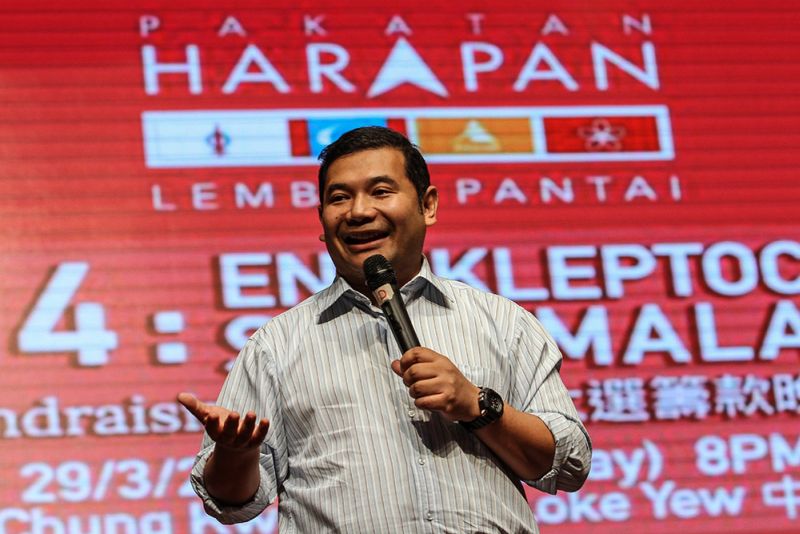KUALA LUMPUR, May 16 — Invoke Malaysia was spot on in its prediction ahead of the 14th general election (GE14) that Pakatan Harapan (PH) would win seven out of 11 states in Peninsular Malaysia and also secure a simple majority to form the federal government, its founder Rafizi Ramli said.
Rafizi said the big data analytics organisation was the only one that had forecasted the then-federal opposition PH’s victory since last January.
“Invoke’s polling prediction that PH would win Kedah, Penang, Perak, Selangor, Negri Sembilan, Melaka and Johor state governments were correct, as well as the prediction of a simple majority of circa 120 seats (including Warisan’s seats).
“On record, Invoke was the only pollster that consistently predicted a PH win from January 2017 onwards,” he said in a statement last night.
In Invoke’s May 7 prediction just two days before polling day, it had predicted that PH would register a clean sweep of the West Coast of peninsular Malaysia except for Perlis which it said would be retained by Barisan Nasional (BN).
It has also predicted that BN would keep Pahang, Terengganu and add on PAS stronghold Kelantan.
The prediction was based on a two-week-long survey via phone calls to 11,991 voters throughout peninsular Malaysia and survey results up to May 4, with voters asked if they would vote for BN, PH or PAS or were unsure.
In announcing the GE14 prediction, Invoke had in a May 7 Facebook post said peninsular Malaysia was expected to see PH winning 111 parliamentary seats, BN winning 54 seats and PAS winning none.
Invoke had then predicted that PH would with the 111 seats then be able to form federal government with the addition of 10 to 15 parliamentary seats from Sabah and Sarawak. This would be equivalent to 121 to 126 seats — more than the 112 seats required for simple majority to form federal government.
In the GE14 results, PH won 97 seats in peninsular Malaysia, while BN and PAS respectively won 50 and 18 seats there. With 24 seats from PH and its ally Parti Warisan Sabah in Sabah and Sarawak and without including independents who later joined it, the coalition won a total of 121 parliamentary seats.
 Rafizi said Invoke’s mathematical modelling which predicted voters’ voting inclination had “correctly predicted most of the results”, explaining the results of PAS retaining Kelantan and Terengganu falling into the party’s hands as being due to an anti-BN push nationwide.
Rafizi said Invoke’s mathematical modelling which predicted voters’ voting inclination had “correctly predicted most of the results”, explaining the results of PAS retaining Kelantan and Terengganu falling into the party’s hands as being due to an anti-BN push nationwide.
“Even in the case of Kelantan and Terengganu, it was obvious that fence-sitters resorted to tactical voting in the last week of campaigning; throwing their support behind PAS (instead of PH) because realistically speaking only PAS was strong enough (as the second party in Kelantan and Terengganu) to defeat BN in those states.
“Likewise, the voters knew enough which party was the strongest to defeat BN in a 3-corner fight elsewhere, that there was a widespread tactical voting (especially among the Malays) throughout the country,” he said.



















